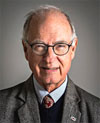Special to WorldTribune.com
 By Donald Kirk
By Donald Kirk
WASHINGTON — North Korean exploitation of the workers whom it sends overseas reaps dividends for the regime while depriving workers of their basic rights.
A prominent defector from North Korea, Roh Hui-Chang, decried the fate of North Korean workers, saying conditions had only worsened while leader Kim Jong-Un takes advantage of moves toward reconciliation by both the U.S. and South Korea.
“They are sending more workers overseas, mainly to China and Russia,” he said. “They work long hours, hardly have enough sleep, get one or two days off a month.”

Roh, who defected to South Korea after the execution of Jang Song-Thaek, for whom he had worked, said he got the latest reports on life in North Korea as well as the misery inflicted on workers sent overseas several days ago.
Talking at a forum at the National Press Club here, Roh lamented the fact that both the U.S. and South Korean governments have dropped the topic of human rights in their efforts at North-South reconciliation. In ways, he said, life has worsened since Kim entered into dialog with South Korea and the U.S.
Roh’s remarks struck a raw nerve among U.S. officials and analysts here as they attempt to figure out how to deal with the whole issue of human rights while President Donald Trump still seems open to a second summit with Kim Jong-Un. The Americans have avoided mention of human rights in North Korea, knowing that Kim would reject any attempt at blaming him , his government or the ruling Workers’ Party for the harsh rule needed to keep his people in line.
Roh estimated that 3,000 people were executed and another 15,000 imprisoned as Kim Jong-Un consolidated his rule before and after Jang’s execution at the end of 2013. He said that he was working in Russia at the time as a bureaucrat in one of the companies controlled by Jang, whom he had gotten to know quite well.
“At first I couldn’t believe it when I heard he had been killed,” he said. “Then after hearing it, I was told that I should return to Pyongyang. I knew that I would be killed.” He defected, he said, first hiding for several months, but he declined to say how he actually got to South Korea, where he worked as a safety deputy for Halla Company and then to the U.S., where he represents a health food company.
Roh did say, however, that he feared for the fate of his own family and friends after he escaped in order to avoid execution. He said that he had gotten brokers to visit his family home and that they had said no one was living there.
“I have no idea what happened to them,” he said.
Roh said workers who went overseas were hired only from families whose loyalty to the regime was totally certain. They might come from privileged backgrounds but often wound up in menial jobs, taking home the equivalent of a few dollars a week after most of their pay is confiscated as donations for the regime.
The Asan Institute for Policy Studies in Seoul has estimated that as many as 147,000 North Koreans are working overseas, 80 percent of them in China and Russia.
U.S. officials have debated among themselves how hard to press the North Koreans on human rights considering that the North inevitably denounces criticism on the topic as slander intended to undermine the regime. Trump lambasted North Korea on human rights during a visit to Seoul last year and again in his state-of-the-union message in January but has not raised the topic while reversing U.S. policy toward the North this year.
Roh and Kim Tae-Hoon, a well known jurist who had served as chief judge of the Seoul District Court, both expressed misgivings about the shift in U.S. policy. The central point was that North Korea goes on repressing its citizens as usual despite Kim’s three summits with Moon and his summit with Trump in Singapore in June.
Roh predicted, if Pope Francis goes to North Korea next year, that “nothing will change” while Kim organizes a massive welcome for the pope. Similarly, he doubted if another Trump-Kim summit would bring about the slightest results.
Suzanne Scholte, president of the Defense Forum Foundation, moderating the panel, sounded a slight note of optimism, indicating that Trump’s warm relationship was basically a negotiating ploy. By appearing to get along wonderfully with Kim, she suggested, Trump hoped to induce him seriously to change his policies – not only to take steps toward denuclearization but also to improve conditions for his people.
Both Roh and Kim Tae-Hoon, founder of Lawyers for North Korean Human Rights and Unification of Korea, were deeply skeptical. Rather, they saw Kim Jong-Un as basically putting on an act, misleading the rest of the world, notably South Koreans and Americans, into thinking he was really a benevolent leader when he remained as cruel as ever in controlling his own people.
